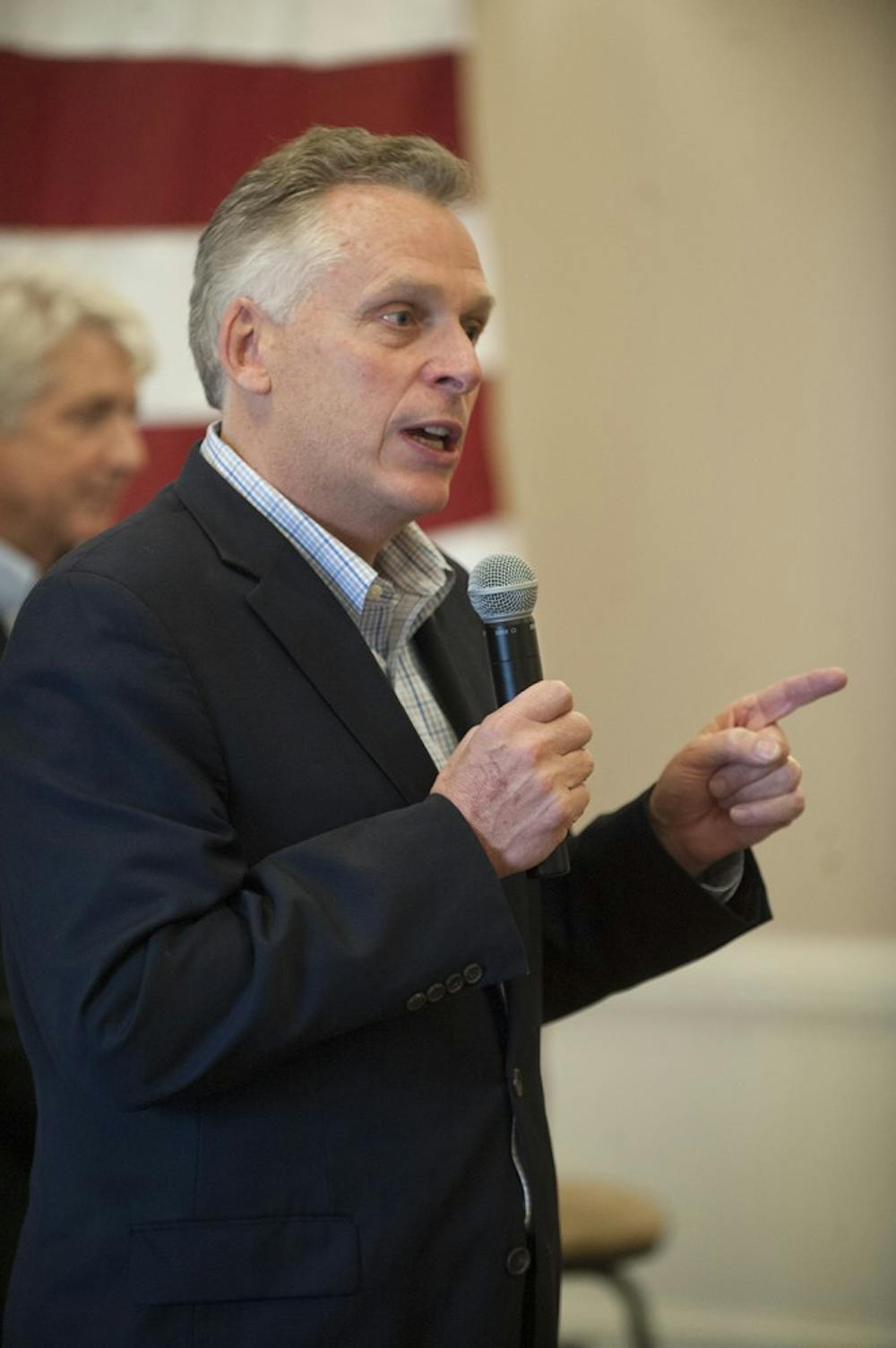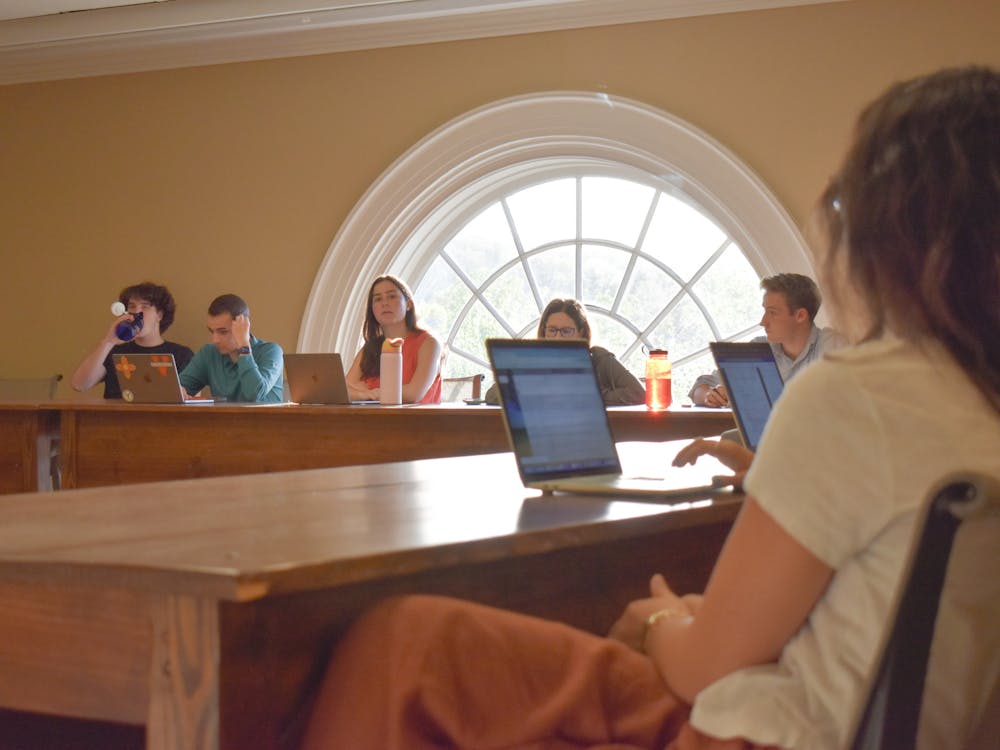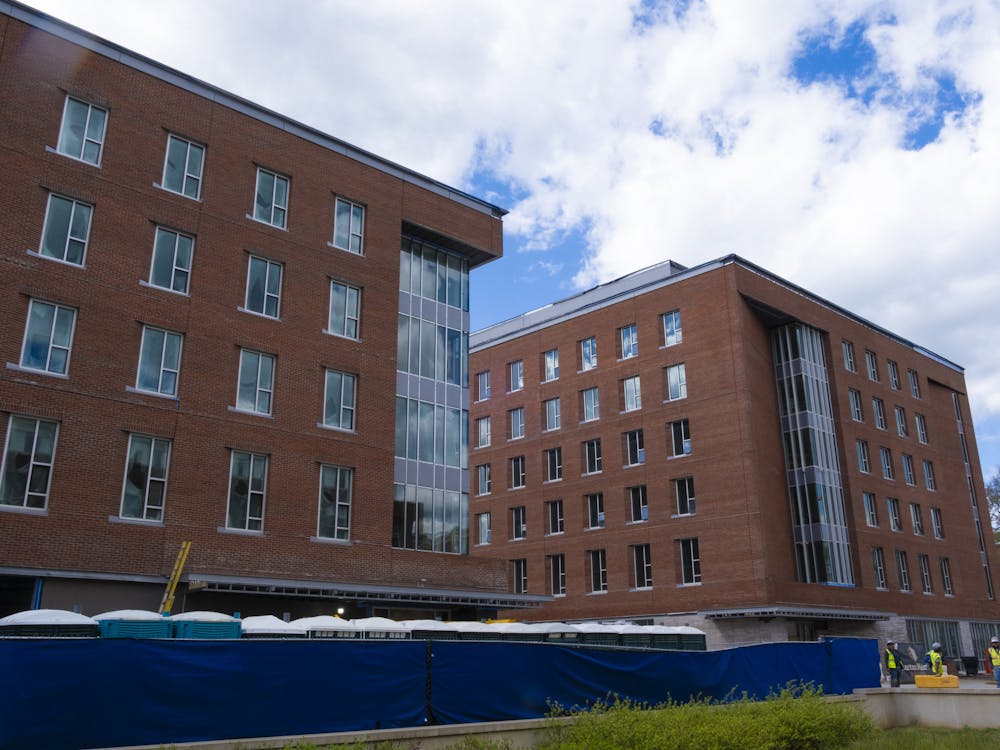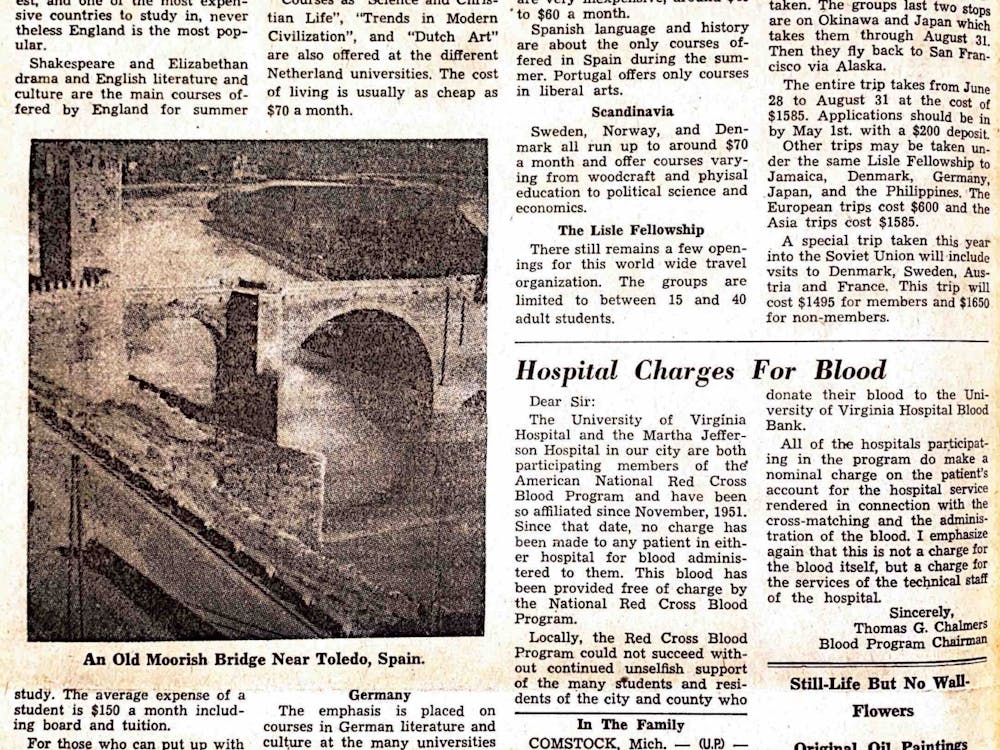The Virginia Supreme Court unanimously ruled last week against a Republican effort to hold Gov. Terry McAuliffe in contempt of court over his efforts to restore voting rights to felons.
Conflict with Republicans began in April when McAuliffe announced he would restore voting privileges to more than 200,000 felons. Republicans filed a lawsuit in response, arguing that blanket clemency by the governor was unconstitutional. The Virginia Supreme Court rejected McAuliffe’s attempt to enfranchise felons in a 4-3 ruling July.
On Aug. 22, McAuliffe started the process of restoring 13,000 felons’ voting rights on an individual basis, which Republicans denounced as an overextension of executive authority.
GOP legislators subsequently filed a motion of contempt for violating the Virginia Supreme Court’s opinion, as several Republicans believed McAuliff had violated the court's July decision prohibiting mass restoration of rights by restoring them on an individual basis. The Virginia Supreme Court, however, ruled in McAuliffe’s favor Sept. 15.
Virginia House of Delegates Speaker William J. Howell (R-Stafford) issued a statement the day of the ruling, acknowledging the order but criticizing McAuliffe’s actions.
“We are disappointed by today’s news but respect the Supreme Court’s order,” Howell said. “The governor stretched the bounds of the Virginia Constitution and sought to expand executive power in a manner we viewed as inappropriate and reckless.”
The General Assembly will now review the state constitution’s provision concerning felon voting, according to Howell’s statement.
“The current provisions of the [Virginia] Constitution are vague, vulnerable to executive overreach and insufficiently transparent,” Howell said. “I have asked a number of House [of Delegates] members to begin evaluating these proposals as we move toward next session and expect a robust discussion when the General Assembly convenes.”
Delegate Marcus Simon (D-Fairfax) agreed with the Virginia Supreme Court’s most recent ruling in favor of McAuliffe.
“The Supreme Court this time around was absolutely right to not find the governor in contempt of the court,” Simon said.
Delegate Mark Cole (R-Fredericksburg) said he was disappointed but not surprised by the Supreme Court ruling. Cole said state courts can be reluctant to intervene in disputes between the legislative and executive branches.
“The law has always been interpreted to allow the governor to grant clemency on an individual basis, after a review of the facts of each particular case,” Cole said. “The governor is not reviewing the facts of each case and is just determined to process as many as he can prior to Election Day whether it is warranted or not.”
Although he does not believe McAuliffe is violating the letter of the law, Cole said the governor is “certainly violating its spirit.”
“I believe most people deserve a second chance, and have helped several constituents get their rights restored, but there needs to be a review of each request to ensure that they have in fact become law abiding members of the community,” Cole said. “Prison sentences are meant to be a deterrent and punishment for crime. It does not pay the criminal's debt to society or their victims, especially in cases of violent crimes where someone was hurt, raped or even killed.”
Delegate Dave Albo (R-Springfield) also voiced concern over the types of criminals that could have their voting rights restored under McAuliffe’s proposal.
“I am confident that the vast majority of the people of Virginia do not want child molesters, drug dealers and violent criminals to get their voting rights back, sit on a jury and be allowed to petition a court for their gun rights,” Albo said in an email statement. “At the least, the governor should do an individual review to make sure that such criminals have earned their rights back.”
Geoffrey Skelley, associate editor of Sabato’s Crystal Ball, said the Republican challenge against McAuliffe’s motion stemmed from questions of constitutionality and executive authority.
“Obviously, the GOP wanted to stop McAuliffe from a large restoration of voting rights, mostly because of concerns about executive power and the constitutionality of such a move as well as a belief that the restoration will help Democrats electorally,” Skelley said in an email statement. “Presumably, McAuliffe will now try to carry out the process of restoring rights to all 200,000+ felons using the same method of individually mailing restoration papers to each felon.”
McAuliffe released a statement last week recognizing the Virginia Supreme Court for dismissing the case brought by Republican leaders.
"I am pleased that the Supreme Court has dismissed the case Republicans filed in their latest attempt to prevent individuals who have served their time from having a full voice in our society,” McAuliffe said. “Restoring these Virginians’ civil rights is morally the right thing to do, and we will continue to move forward via a process that is in full compliance with the court’s July 22 ruling and the precedent of previous governors.”
McAuliffe said he hopes the Republican leaders will “focus their energy and resources on making Virginia a better place to live for the people who elected all of us to lead.”
McAuliffe’s Director of Communications Brian Coy said the governor will support a constitutional amendment that would lessen voting restrictions for Virginia felons who have served their time in prison.
“Generally, he will oppose proposals that make Virginia’s approach to this issue more restrictive than the policies that are already in place, which the Supreme Court validated yesterday,” Coy said in a Sept. 16 email statement. “Specifically, he believes everyone should pay the fines, fees and restitution that may be assessed to them, but that making those financial liabilities a barrier to voting is a vestige of the poll tax. If we are going to amend the constitution on this issue, we should move forward not backward.”
Simon has proposed an amendment to the Virginia Constitution that would completely remove the line in Article II, Section I which reads, “No person who has been convicted of a felony shall be qualified to vote unless his civil rights have been restored by the Governor or other appropriate authority.”
“I don’t think that language needs to be in the Constitution,” Simon said. “If the state legislature wants to say it, then let’s leave it to the legislature and get it out of the Constitution in order to bring some clarity.”
Virginia Senate Majority Leader Thomas Norment, Jr. (R-James City) said he will also be proposing a constitutional amendment that would restore voting rights for nonviolent felons and remove the governor from of the process.
“To ensure the unnecessary drama that ensued after Gov. McAuliffe issued his unconstitutional rights restoration order on April 22 does not repeat itself, this amendment would remove the executive from the rights restoration process,” Norment said in a statement, according to NBC12.
To amend the state constitution, Skelley said the same amendment language must be passed in two consecutive General Assembly sessions with an election in between. It then has to be passed by voters in the next November general election.
Though Simon said amending the constitution is a lengthy process, he is positive about the future.
“I think there’s going to be a lot of discussion during this session about voting rights,” Simon said. “When we come back again next year I think we’ll see progress.”





